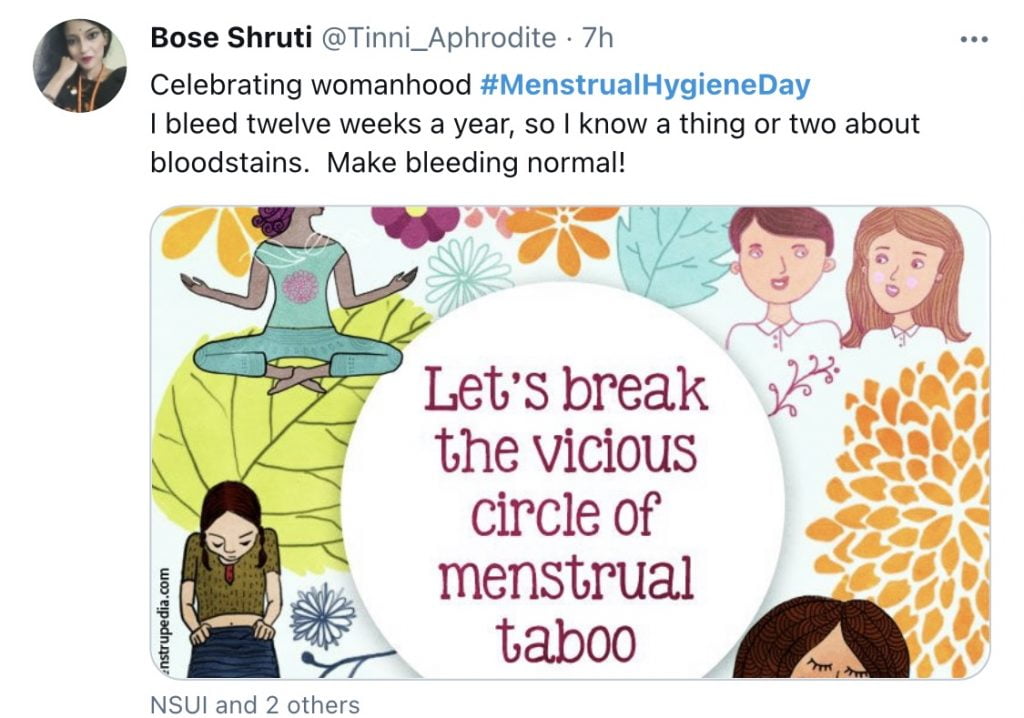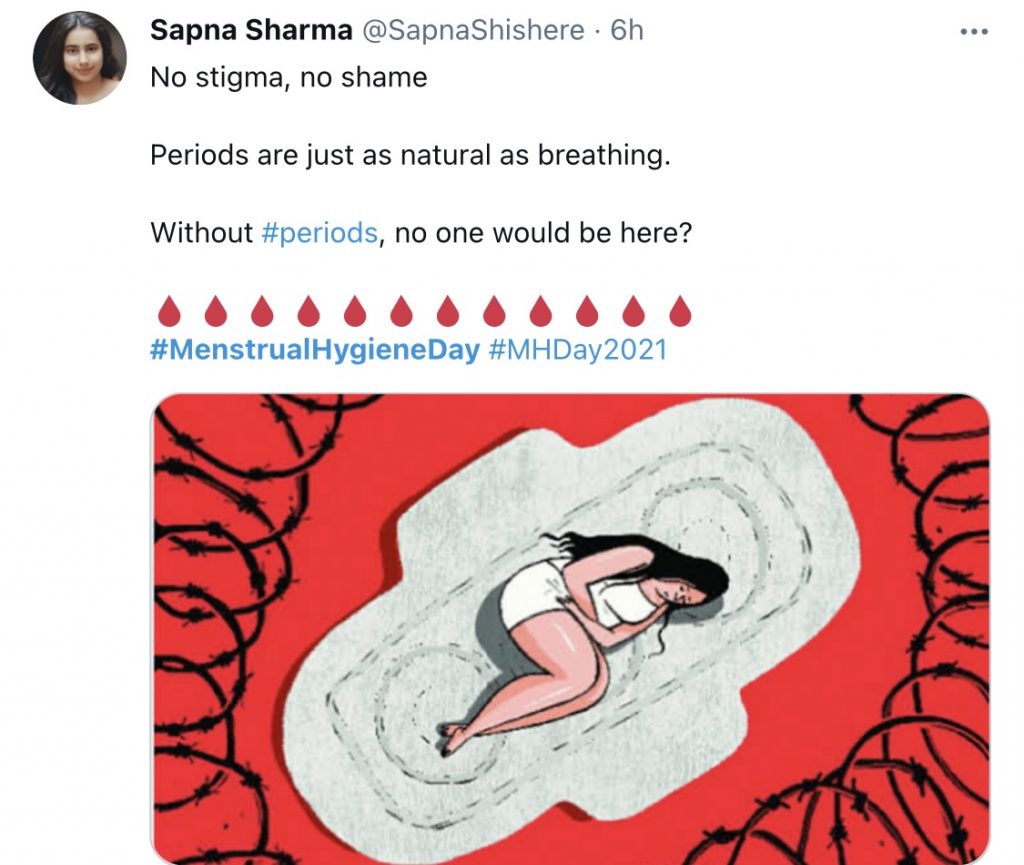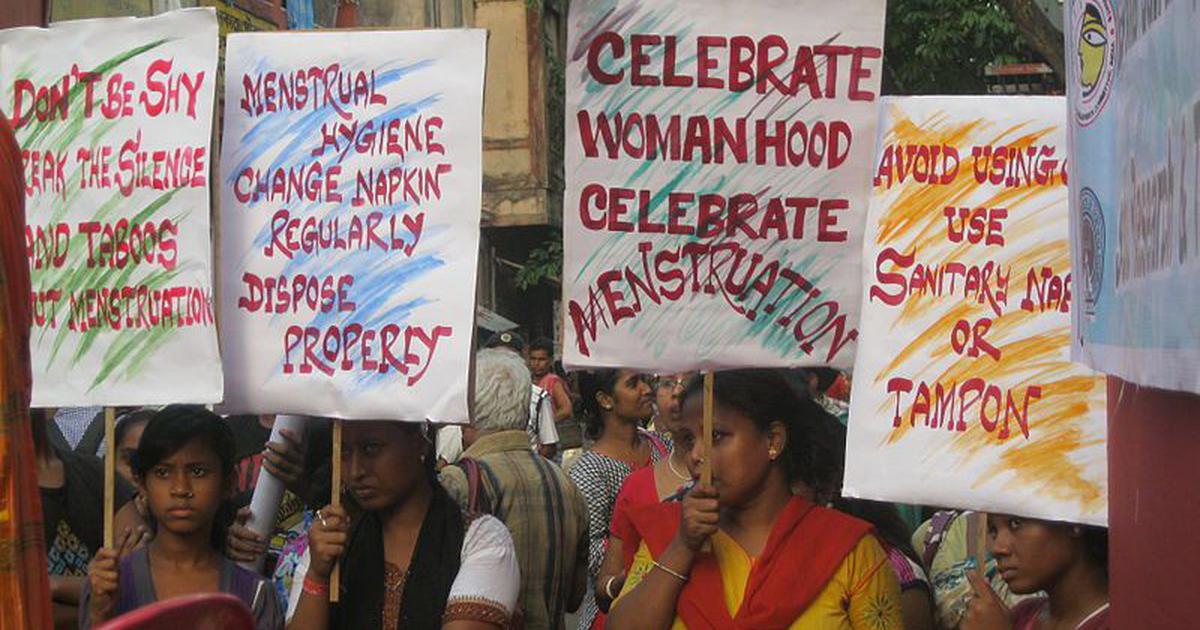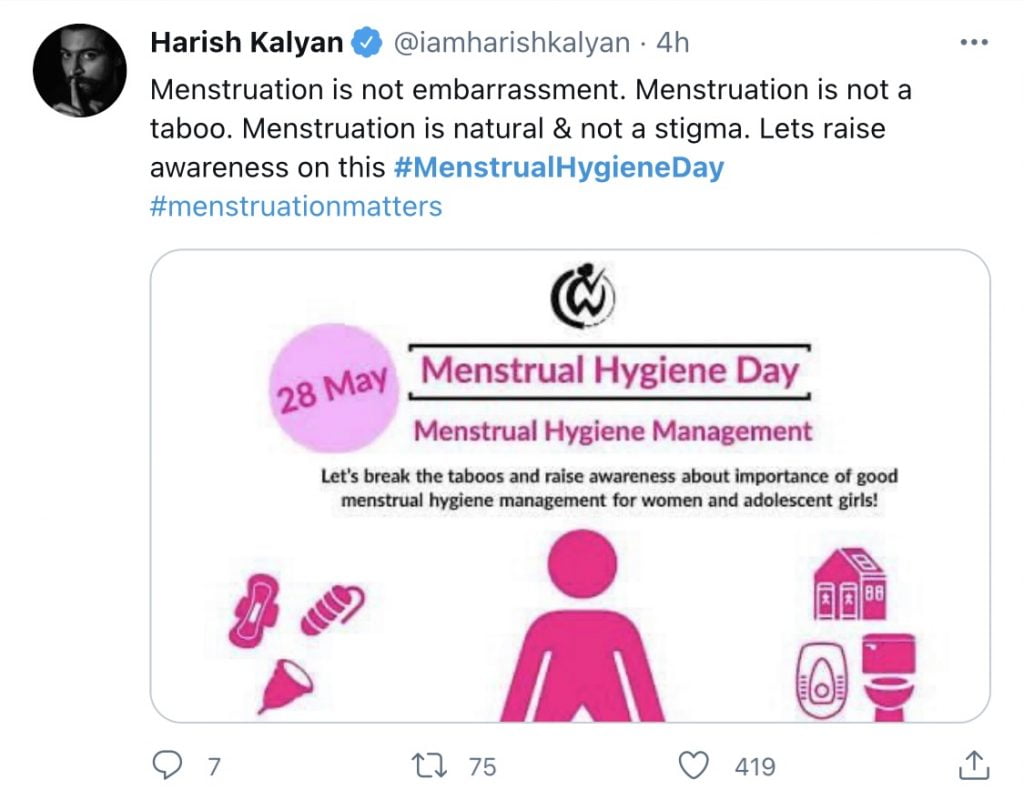Today is World Menstrual Hygiene Day, and social media is flooded with perplexing figures, statistics, stories, and illustrations regarding menstrual hygiene, as well as #periodtalk. There are no complaints, though, because the world is discussing menstruation the way it ought to be. We should also discuss it more frequently, not only just on Menstrual Hygiene Day.
The United Nations has declared menstrual health as a human right, yet many women in our country are deprived of basic sanitary napkins.
According to a recent survey, in rural India, one in five girls drop out of school when they start their period—that’s 10 million every single year.
What is the reason behind this? Because students aren’t given sufficient instruction on menstruation as they grow up, with teachers too embarrassed to even bring it up, and instead girls are taught that it is an impurity that should be hidden from the rest.
Even if one overcomes the stigma of menstruation, the dread of getting reprimanded by professors and attending classes while on your period without access to decent restrooms or sanitary supplies becomes so overwhelming that many individuals in rural India would prefer to stay at home or drop out entirely.
Recently last year, there were widespread allegations of a “sanitary-pad crisis” when India initially went into a nationwide lockdown in March 2020. Pharmacies and supermarkets immediately ran out of sanitary pads since they were not on the government’s list of basic commodities. Despite the fact that sanitary products were finally added to the list of necessary commodities, there are still a number of impediments to their use.
The situation in rural India is far worse, where adoption rates are already low, and with an added pandemic, the price and distribution of sanitary napkins have been preventing women from using sanitary pads.
In many cases, purchasing sanitary products in a village entails a journey to a nearby town. When they can’t leave their village, they rely on handmade alternatives like fabric rags.
Even when travel is permitted, the added financial strain that many families experience and henceforth that sanitary products are pushed aside in favor of other necessities like food.
In Bihar, for instance, according to the National Family Health Survey 5 (2019-2020), only 42% of girls in the 15-24-year-old age group used sanitary napkins and just 2% used tampons. The others rely on clothes and other items, which may also compromise hygiene.
An additional factor is that the closing of state-run schools has resulted in a halt in the provision of sanitary pads to female students in their adolescent years.
Individuals all throughout the world have used Twitter to mark the occasion. They are working to eliminate the stigma associated with menstruation, alleviate period poverty, and promote menstrual hygiene.
Here’s how people are breaking the shackles of stigma and discussing menstrual hygiene today on Twitter.


Effective menstrual hygiene management must be a key component of our recovery efforts, not only because healthy menstruation must be considered a fundamental right, but also because it has the potential to boost women’s economic involvement and promote gender equality.
Menstrual hygiene will be attained not just via sophisticated and safe products, also via a change in attitudes and behavior toward improved hygiene. We need to spread awareness about women’s hygiene, we need to assist them in breaking taboos surrounding menstruation. We need to debunk myths and misconceptions, and we need to provide information about menstrual hygiene products including sanitary napkins, cloth sanitary pads, and even clean sun-dried cotton cloth based on their comfort.
We must state unequivocally that we will no longer accept the stigmatization of periods. Menstruation is a normal bodily function, and everyone should be aware of it and should respect a woman’s body. Let’s not hide the sanitary pads in newspapers or black covers; instead, let them be apparent to everybody since we don’t want to hide them anymore. Let’s talk about period concerns at the dinner table, in the office cafeterias, in college campuses, in parks, and everywhere else.
References:
Image Source:
Scroll






















































































